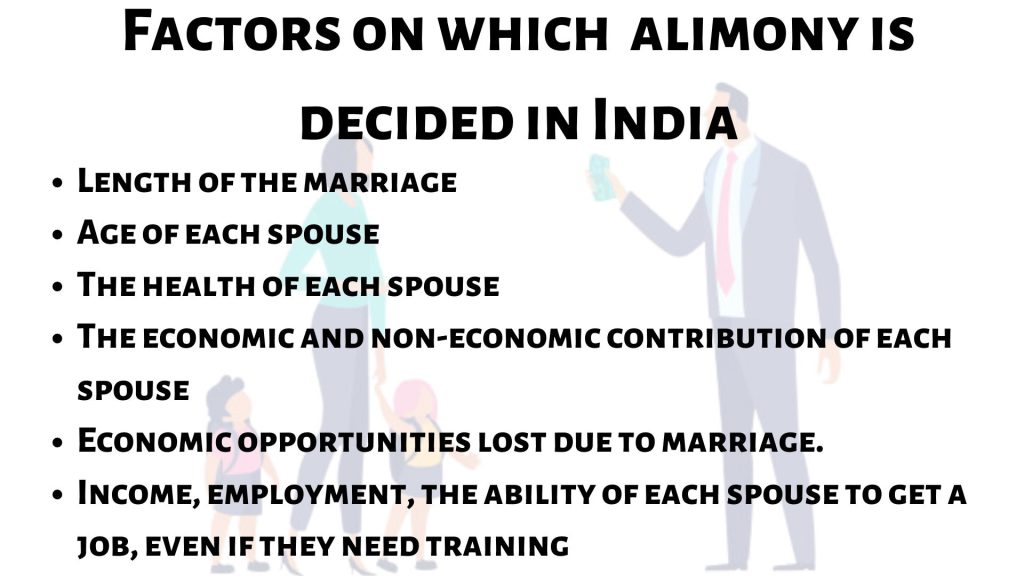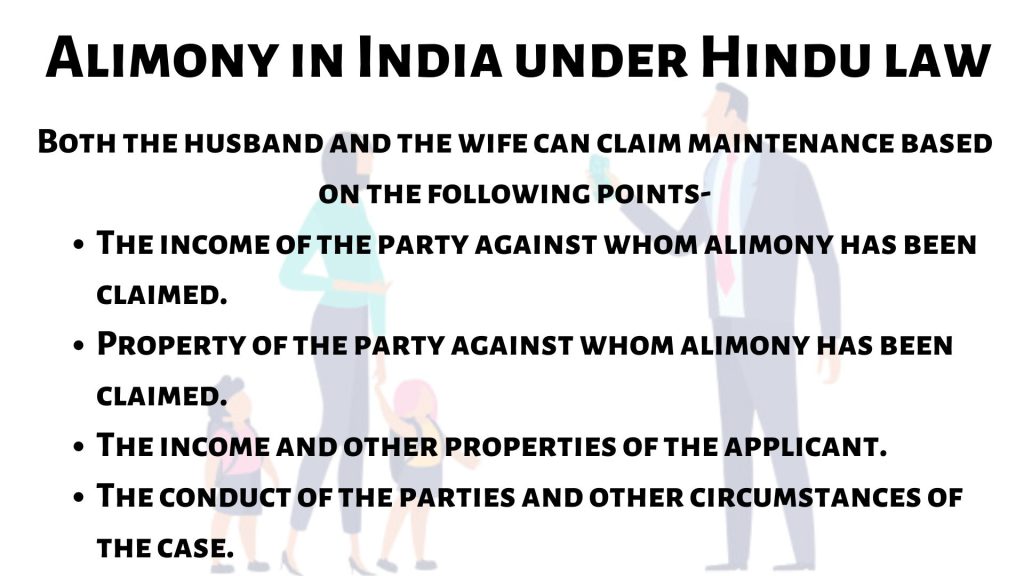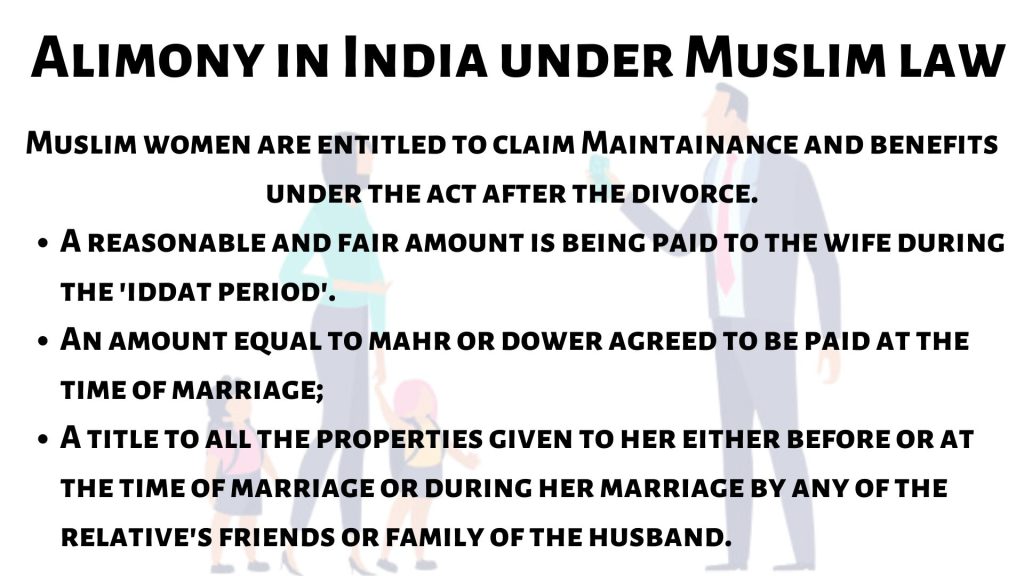Introduction
According to the reports, the number of divorces has doubled over the past two decades. The very crucial part after you decide to separate as a couple is deciding on alimony. If you are not sure how alimony in India is decided here is the article for you.
It covers all the alimony rules for all the religions that are there in India.
Let us begin!
Suggested Reading – Reasons for divorce in India
What is Alimony?
Alimony is the monetary help that is given after divorce or separation to the spouse who is not capable of earning and hence cannot take care of himself/ herself from the other spouse.
Suggested Reading- How to avoid alimony in India
Types of Alimony in India?
There are two types of Alimony or maintenance as per they are paid, take a look below
- The interim maintenance amount provides pendent lite during court proceedings.
- The final amount is paid at the time of legal separation. This is usually a lump sum amount.
Suggested Reading- Legal grounds for divorce in India
How Alimony is decided in India?

- Length of the marriage
The length of the marriage is the number of months between the date you married and the date a complaint about divorce or separate support is served.
The judge can add months to the length of the marriage if you can show you were living together and you had a financial partnership before you married. . The judge can also deviate from the amount of time for the kind of alimony if you have special circumstances.
The length of the marriage affects the kind of alimony. Usually, judges order more alimony for longer marriages, the longer the marriage, the more alimony a judge will order.
- The health of each spouse
The judge when deciding on alimony considers the health of each spouse. If any of the spouses is unhealthy and if he/she finds it difficult to work and take care of themselves, then the court can ask the healthy spouse to take care of the unhealthy one. This decision is irrespective of the gender of the spouse.
- Ages of each spouse
Old age comes with many diseases, and old age makes earning capacity and general livelihood difficult.
Therefore while deciding on alimony the court also considers the ages of each of the spouses because if the spouse is in old age, it is obvious that providing alimony would be a little difficult.
- Economic and Non-economic contributions of each spouse in the marriage
The court also considers the economic and non-economic contributions of each spouse during the marriage while deciding on alimony.
- Economic opportunities are lost due to marriage.
The court in deciding alimony also considers which spouse lost his/her job opportunities during or after marriage. They also consider the job opportunities lost during the divorce proceedings.
- Income, employment, the ability of each spouse to get a job, even if they need training
The major factor that decides alimony is the income of each spouse, their employment opportunities, and the ability of each partner to get a job. If the wife or the husband is uneducated, it is obvious that he/she would not be able to earn their bread and butter. So this factor needs to be considered.
Suggested Reading- Aspects to take care of before filing for divorce in India
Alimony in India under Hindu law

Under the Hindu Law, provisions for alimony have been laid down under the Hindu Marriage Act, 1955, and the Hindu Adoption and Maintenance Act, 1986.
The husband or the wife can claim maintenance based on the following points-
- The income of the party against whom alimony has been claimed.
- Property of the party against whom alimony has been claimed.
- The income and other properties of the applicant.
- The conduct of the parties and other circumstances of the case.
Under the Hindu adoption and maintenance act, the wife can choose to live separately with her husband without forfeiting her claim to maintenance, and alimony will be granted to her on the following grounds-
- If the wife is deserted for several years and is wilfully neglected by her husband.
- If the husband is involved in doing cruelty to his wife that has cost her physical, mental, and emotional well-being.
- If the husband is abusive and violent and living with him can prove dangerous to the life of the wife.
- If the husband has another subsisting marriage.
- If the husband is suffering from a severe form of leprosy or any other dangerous communicable diseases like STDs.
- If the husband has changed his religion to some other religion.
- If the husband has an affair outside the marriage.
- If there is any other justifiable reason for living separately with him.
Alimony in India under Muslim law

A Muslim woman can claim alimony under two section which is as follows
- Muslim Women (Protection of Rights on Divorce) Act, 1986
- Under the Criminal Procedure Code.
The Muslim Women(Protection of Rights on Divorce) Act provides for maintenance for Muslim women only after the divorce has been granted. The wife is entitled to claim maintenance from the husband which must be made during the ‘iddat’ period.
Muslim women are entitled to claim Maintainance and benefits under the act after the divorce.
- A reasonable and fair amount is being paid to the wife during the ‘iddat period’.
- An amount equal to mahr or dower agreed to be paid at the time of marriage;
- A title to all the properties given to her either before or at the time of marriage or during her marriage by any of the relative’s friends or family of the husband.
A woman under the act is only eligible to get maintenance if:-
- She has not remarried and is not able to maintain herself after the iddat period.
- She has children and is not able to maintain them and perform her duties towards them.
The Act further states that if there is no one to maintain the Muslim wife then the State waqf board functioning in the area in which the woman resides is bound to pay such maintenance as determined by the court.
Alimony in India for Christians
Christians in India are governed under the Indian Divorce Act, 1969. Similar to Muslim law, the Indian Divorce Act also doesn’t recognize maintenance for men. Under the Act, if a suit for divorce has been instituted either by the husband or the wife, the wife can file a petition for expenses of the proceedings and alimony during the pendency of the suit and the husband would be liable to pay the cost if an order has been made in this regard by the court. The Act also states that such an application shall be disposed of within sixty days of it being presented.
Taxability of Alimony
In the income tax act, no specific provisions are given regarding the taxability of alimony.
However, past court judgments have given a better understanding of the same. In the case of a lump-sum payment of alimony, the alimony will be treated as a capital receipt and thus, the provisions of the IT Act would not apply. Here, it is not treated as income and is not taxable. However, in the case of recurring payments of alimony, the alimony is considered a revenue receipt and is treated thus as income that is taxable in the hands of the recipient of the alimony.
Hire a good lawyer
Separating from your partner can bring a lot of mental stress to you and your family. It is indeed a rough path to walk on.
Hiring a good divorce lawyer can help you a lot in this entire process. the lawyers will take care of all the paperwork for which you don’t have to take any stress. Also hiring a lawyer can be very beneficial for you if you want to get the maximum benefits concerning alimony and child custody.
A divorce lawyer is an expert on the laws and can help you avoid significant mistakes that may cause financial harm or will require future legal proceedings to correct. Thus, by hiring an attorney a person can make sure that he can avoid delay and get the divorce completed as quickly as possible.
Conclusion
So here were the factors on which alimony in India is decided. I hope this article would have been of some help to you.
If you found it helpful, do not forget to share this piece of information with people who may need it.
What can a wife claim in divorce in India?
Under the Hindu Marriage Act, 1955, both the husband and wife are legally entitled to claim permanent alimony and maintenance. However, if the couple marries under the Special Marriage Act, 1954, only the wife is entitled to claim permanent alimony and maintenance.
Can a wife claim maintenance without divorce?
Yes, you can claim maintenance under section 24 of the Hindu Marriage Act from the husband even without divorce, if he is not making any payment. you can too file a complaint under the domestic violence act for the payment of maintenance.
How does alimony differ in cases of divorce by mutual consent and those that are contested?
If a couple is undergoing divorce by mutual consent, the decision of who pays who is a matter of agreement between them. With mutual understanding, the couple can decide whether the husband has to pay the wife, or vice-versa. The court will pass the divorce order based on terms decided between the couple.
If the divorce is contested, the decision of alimony rests with the court.
What if the spouse paying alimony or maintenance starts earning more after the income mentioned in the alimony document has been passed?
Just because one spouse’s income has gone up, doesn’t mean that the one receiving alimony is entitled to more. The spouse receiving alimony would have to prove their inability to maintain themselves with the amount they are already receiving.
